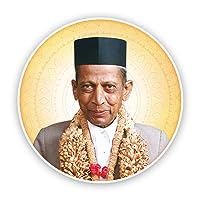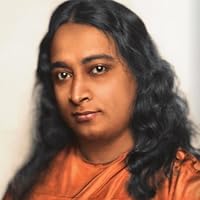Enlightened One Quotes
Quotes tagged as "enlightened-one"
Showing 1-30 of 139
“Self-mastery epitomizes the height a person’s of measureable success. Conversely, we can gauge the depth of personal failure by a person’s degree of lack of self-control and self-abandonment.”
― Dead Toad Scrolls
― Dead Toad Scrolls

“Enlightenment is radiating peace and harmony from every cell, every gene and every DNA of our body.”
― Enlightenment Step by Step
― Enlightenment Step by Step
“A person cannot exert absolute control over a capricious environment. A wise person concentrates on serenely adjusting to variable permutations in the environs. A personal journey is less anxious if a person resolves to serve as a conscious witness to the natural world and the unfolding lives of family and friends. It is emotionally stabilizing when we no longer delude ourselves with grand fantasies about living and dying, experience life for what it is and stop wishing for a different existence, an altered universe. Nothing good comes from resisting reality.”
― Dead Toad Scrolls
― Dead Toad Scrolls
“Self-mastery is the first step towards attaining enlightenment. Change begins with personal dissatisfaction and belief that a person can do better. A person can set meaningful goals and vow not to hold onto frivolous attachments. My objective is to cultivate the ability to expect the best effort from myself and never be afraid to tackle the type of difficult projects or pursue scintillating adventures that spur mental growth. I aim to become a loyal, loving, and joyful person, and broaden personal knowledge through a self-prescribed course of active reading and studious contemplation. I aspire to use an expanded base of knowledge to live a more ethical and principled existence and rid myself of self-defeating behaviors brought on by brooding doubts regarding the paucity of my innate talent. Instead of grieving over what I failed to achieve, I plan to concentrate upon what I can achieve and bring the collective force of my newly resolved mindset to the forefront.”
― Dead Toad Scrolls
― Dead Toad Scrolls

“The one with form (sakaar; self) will have to be made formless (nirakaar, Self). The Self is formless. However, opinions about it, reflects the formed state. To have a formed state for that, which is formless, is a contradiction in itself. In order to get rid of the contradiction, one will have to come into the formless intent. ‘We’ (the Gnani) see the formless as formless and we remain in the intent of the formless. To project a shape or form for the Self that is formless is tantamount to chopping off the Self. What a grave mistake is committed!”
― The Science Of Karma
― The Science Of Karma

“The Vitarag path, the path of the enlightened ones, is such that there is a gain for both the giver as well as the taker, whereas in the worldly path, the giver incurs a loss and the taker gains a benefit.”
― The Science of Money
― The Science of Money

“If you learn to like, what you dislike, you will find the solution.”
― Fault is of the Sufferer
― Fault is of the Sufferer

“This ‘good’ and ‘bad’ that we see; are the states of the body complex, the non-Self (pudgal). Do not separate them into ‘this is good’ and ‘this is bad’. Such distinctions have been made by, those believing in dualities. These dualities are vikalps (intellectual ideas; contrary thoughts; not reality). The nirvikalpi, one with awareness of the Self, sees both the good and the bad as vibhavik avastha, as states of the non-Self.”
― Anger
― Anger

“There are two types of worldly life: renouncing [tyaag] is a worldly life and family life [gruhasti] is also a worldly life. Those who renounce are constantly in the knowledge of ‘I am renouncing…I am renouncing’. And the family man prevails in the knowledge of ‘I am acquiring…I am taking…I am giving’. But the one, who attains knowledge of the self [soul], will attain liberation (moksha). Where does one acquire Knowledge of the Self? From the ‘Gnani Purush’ [the Enlightened One].”
― Aptavani-4
― Aptavani-4

“This [worldly life] is nature’s mysterious puzzle. No one has become free from it. And those who did become free, did not stay back to tell others. I failed [fell short] in achieving ‘Kevalgnan’ [360 degree enlightenment of the soul] so I am here to tell you, so take care of you and get your work done (of moksha - salvation). This is indeed yours. ‘We’ are just here to make you accomplish your task.”
― The Flawless Vision
― The Flawless Vision

“All this is duality. The “Gnani” [the enlightened one] is beyond duality and duality itself means the worldly life.”
― Spirituality in Speech
― Spirituality in Speech

“Where the world is inactive, the ‘Gnani’ [the enlightened one] is active, and where the world is engaged in activities, there is inactivity on the ‘Gnani’s’ [the enlightened one] part! The activity of the world is run by the prakruti (relative self) only!”
― Aptavani-5
― Aptavani-5

“The ‘Pure Love’ of the ‘Gnani Purush’ [the enlightened one] that neither increases nor decreases, the love that remains constant, is the Absolute Supreme Self (Parmatma). He is the openly visible Parmatma and His embodiment of knowledge (Gnan swarooop) is ‘subtle Parmatma’.”
― The Flawless Vision
― The Flawless Vision

“Dealing with files with equanimity’ means where revenge (vengeance) does not increase and where one remains attachment-free (vitaraag). Even the worldly people know how not to increase revenge. But what really matters is, that revenge does not increase and that one remains attachment-free [vitaraag].”
― Aptavani-4
― Aptavani-4

“We’ (the Gnani, the self realized), have never had a difference of opinion with anyone. Because the Gnani’s (the self realized) language is different and the agnani’s (non-Self-realized) language is different. The Gnani’s (the self realized) language is ‘real’ and the agnani’s (non-Self-realized) language is ‘relative’.”
― Aptavani-4
― Aptavani-4

“Additional (excessive) knowledge’ [vishesh gnan] will lead to interference, and ‘basic knowledge’ [samanya gnan] will lead to a state of non-attachment (vitaraagta).”
― Anger
― Anger

“At the time when it comes into one's conduct, that very understanding becomes effective as Knowledge. The understanding always continues to make one gain an experience. The experience of the understanding given by the Gnani keeps on happening, and then one day it will result in Knowledge.”
―
―

“When one Sees and Knows yet attachment and abhorrence do not arise, that is called vitaraag charitra (conduct that is free of attachment and abhorrence)!”
―
―

“The science of absolutism (vitaraag vignan) is so vast that if just one strand of hair's worth were to be revealed to”
―
―

“All the doors of your intellect get shut in this satsang. Slowly everything becomes clarified; the Gnani Purush makes us just as He is! The Gnani himself has become the real form as the absolute Self (Parmatma swaroop). [By remaining] In 'his' company, that form manifests for us too.”
―
―

“Liberation is not possible even after a million lifetimes. Your work [of liberation] is getting done only because you have met a living Gnani Purush. The absolute Gnani is One for whom nothing in this world remains to be known. He is constantly conversing with the absolute Self (Parmatma); such a Gnani can do whatever he wishes!”
―
―

“Where the entire world sleeps, there the Gnanis remain awake, and where the Gnanis sleep, there the world remains awake.”
―
―
“I stand on the banks of time silently witnessing the world change beneath my feet. I arrive at a desirable place in a world when I learn to accept a world devoid of my paltry existence. When my self-inflicted wounds heal, I will stand as mute as a mountain impervious to the whimsy of the quaking world and no longer be deluded into aspiring to be a member of a fantasy world of pleasure-seeking people. Fame and fortune do not matter to an enlightened person, it is sufficient simply to be present and unflinchingly support all life forms without hesitation.”
― Dead Toad Scrolls
― Dead Toad Scrolls

“What is Enlightenment? Enlightenment is to be vigilant when everyone is sleeping; it is to see when everyone is blind; to hear when everyone is deaf!”
―
―
“A person who seeks an enlightened existence must awaken to realize universal truths.”
― Dead Toad Scrolls
― Dead Toad Scrolls

“Soul work [is] [...] seeking to realize (make "real") Who You Truly Are.
You can create Who You Are over and over again. Indeed, you do - every day. As things now stand, you do not always come up with the same answer, however. Given an identical outer experience, on day one you may choose to be patient, loving and kind in relationship to it. On day two you may choose to be angry, ugly and sad.
The Master is one who always comes up with the same answer - and that answer is always the highest choice.
In this the Master is imminently predictable. Conversely, the student is completely unpredictable. One can tell how one is doing on the road to mastery by simply noticing how predictably one makes the highest choice in responding or reacting to any situation.”
― Conversations with God: An Uncommon Dialogue, Book 1
You can create Who You Are over and over again. Indeed, you do - every day. As things now stand, you do not always come up with the same answer, however. Given an identical outer experience, on day one you may choose to be patient, loving and kind in relationship to it. On day two you may choose to be angry, ugly and sad.
The Master is one who always comes up with the same answer - and that answer is always the highest choice.
In this the Master is imminently predictable. Conversely, the student is completely unpredictable. One can tell how one is doing on the road to mastery by simply noticing how predictably one makes the highest choice in responding or reacting to any situation.”
― Conversations with God: An Uncommon Dialogue, Book 1

“An enlightened person is not like a street lamp that is sad because it cannot illuminate other streets because those he illuminated will surely visit other streets as well!”
―
―

“The Upanishads have minutely classified every stage of spiritual advancement:
- Jivanmukta ("freed while living")
- a siddha ("perfected being") has progressed from the state of jivanmukta ("freed while living") to that of:
- a paramukta ("supremely free" - full power over death); the latter has completely escaped from the mayic thralldom and its reincarnational round. The paramukta therefore seldom returns to a physical body; if he does return, he is:
- an avatar, a divinely appointed medium of supernal blessings on the world. An avatar is unsubject to the universal economy; his pure body, visible as a light image, is free from any debt to Nature. The casual gaze may see nothing extraordinary in an avatar's form; but, on occasion, it casts no shadow nor make any footprint on the ground. These are outward symbolic proofs of an inward freedom from darkness and material bondage. [...] Krishna, Rama, Buddha and Patanjali were among the ancient Indian avatars. [...] Agastya, a South Indian avatar.
- Mahavatar (Great Avatar) - Babaji's mission in India has been to assist prophets in carrying out their special dispensations. He thus qualifies for the scriptural classification of Mahavatar (Great Avatar). [...] Babaji is ever in communion with Christ; together they send out vibrations of redemption and have planned the spiritual technique of salvation for this age. The work of these two fully illumined masters is to inspire the nations to forsake wars, race, hatreds, religious sectarianism, and the boomerang evils of materialism.[...]
Only one reason motivates Babaji in maintaining his physical form from century to century: the desire to furnish humanity wit ha concrete example of its own possibilities. Were man never vouchsafed a glumpse of Divinity in the flesh, he would remain oppressed by the heavy mayic delusion that he cannot transcend his mortality.
-
pg305-310, Chapter 33, Babaji, Yogi-Christ of Modern India”
― Autobiography of a Yogi
- Jivanmukta ("freed while living")
- a siddha ("perfected being") has progressed from the state of jivanmukta ("freed while living") to that of:
- a paramukta ("supremely free" - full power over death); the latter has completely escaped from the mayic thralldom and its reincarnational round. The paramukta therefore seldom returns to a physical body; if he does return, he is:
- an avatar, a divinely appointed medium of supernal blessings on the world. An avatar is unsubject to the universal economy; his pure body, visible as a light image, is free from any debt to Nature. The casual gaze may see nothing extraordinary in an avatar's form; but, on occasion, it casts no shadow nor make any footprint on the ground. These are outward symbolic proofs of an inward freedom from darkness and material bondage. [...] Krishna, Rama, Buddha and Patanjali were among the ancient Indian avatars. [...] Agastya, a South Indian avatar.
- Mahavatar (Great Avatar) - Babaji's mission in India has been to assist prophets in carrying out their special dispensations. He thus qualifies for the scriptural classification of Mahavatar (Great Avatar). [...] Babaji is ever in communion with Christ; together they send out vibrations of redemption and have planned the spiritual technique of salvation for this age. The work of these two fully illumined masters is to inspire the nations to forsake wars, race, hatreds, religious sectarianism, and the boomerang evils of materialism.[...]
Only one reason motivates Babaji in maintaining his physical form from century to century: the desire to furnish humanity wit ha concrete example of its own possibilities. Were man never vouchsafed a glumpse of Divinity in the flesh, he would remain oppressed by the heavy mayic delusion that he cannot transcend his mortality.
-
pg305-310, Chapter 33, Babaji, Yogi-Christ of Modern India”
― Autobiography of a Yogi
All Quotes
|
My Quotes
|
Add A Quote
Browse By Tag
- Love Quotes 97.5k
- Life Quotes 76k
- Inspirational Quotes 73k
- Humor Quotes 44k
- Philosophy Quotes 29.5k
- Inspirational Quotes Quotes 27k
- God Quotes 26k
- Truth Quotes 23.5k
- Wisdom Quotes 23.5k
- Romance Quotes 23k
- Poetry Quotes 22k
- Death Quotes 20k
- Happiness Quotes 18.5k
- Life Lessons Quotes 18.5k
- Hope Quotes 18k
- Faith Quotes 18k
- Quotes Quotes 16.5k
- Inspiration Quotes 16.5k
- Spirituality Quotes 15k
- Religion Quotes 15k
- Motivational Quotes 15k
- Writing Quotes 15k
- Relationships Quotes 14.5k
- Life Quotes Quotes 14k
- Love Quotes Quotes 14k
- Success Quotes 13.5k
- Time Quotes 12.5k
- Motivation Quotes 12k
- Science Quotes 11.5k
- Motivational Quotes Quotes 11.5k


